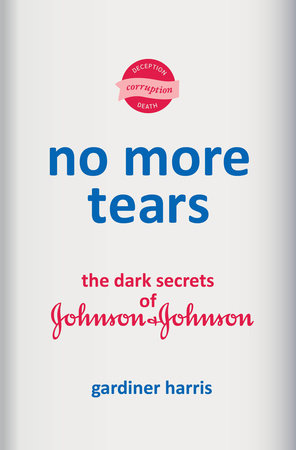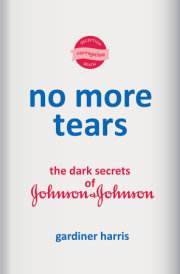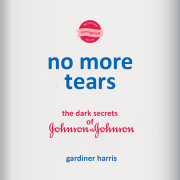Chapter 1An Emotional BondJohnson’s Baby Powder and Tylenol are among the most beloved and iconic consumer products ever sold. They largely define Johnson & Johnson’s image and have long provided the company with a protective halo of affection from consumers, professionals, and government officials.
While Tylenol is a juggernaut, Johnson’s Baby Powder is among the most potent branding instruments ever. The product’s fragrance resulted from a lengthy effort to concoct just the right bouquet. After multiple experiments, the company created a complex and distinctive floral scent with more than two hundred ingredients—natural oils, extracts, and aromatic compounds—from all over the world. The fragrance has a sweet, vanilla-like base but also contains overtones of jasmine, lilac, rose, musk, and citrus.
Company surveys found this distinctive mixture of ingredients to be the most recognized fragrance in the world, and for much of the American adult population it conjured the most pleasant memories and associations. Talc products were the cornerstone of the company’s baby products, which, despite sales that have in recent years represented less than 1 percent of the company’s revenues, were collectively the company’s “most precious asset” and “crown jewel,” according to a 2008 company slide deck titled “Our Baby History.”
“The association of the Johnson’s name with both the mother-infant bond and mother’s touch as she uses the baby products is known as Johnson & Johnson’s Golden Egg,” the 2008 slide deck stated.
Surveys showed that the Johnson & Johnson brand is associated most strongly with baby products, and that this association creates an unmatched level of trust—invaluable for a healthcare company.
“Many companies have rational trust,” a 1999 corporate slide deck stated. It listed Merck, Bristol-Myers Squibb, GlaxoSmithKline, Procter & Gamble, and Colgate as among the companies with rational trust. At the time, pharmaceutical companies topped surveys of the most admired companies in the world. “Only Johnson & Johnson also has real emotional trust.”
“Johnson & Johnson’s unique trust results in real business gains for the company,” the presentation stated. Among the important benefits, the presentation claimed, is that consumers will forgive missteps and brand crises.
The most powerful of human emotional bonds is between a mother and her baby, the presentation stated. In the slides, the value of this bond is pictured as a piggy bank with coins dropping into its slot on the back, with the words “Mother-Baby Bond” on its side.
“Johnson’s baby is 50% heart and 50% mind,” concluded the slide deck, which is titled “Trust Is Our Product.”
A crucial way that Baby Powder engenders and sustains emotional trust is through its fragrance. Smells feed directly into the brain’s limbic system, the ancient seat of human emotion.
“Olfactory learning occurs before birth and helps develop social capacities,” another 2009 deck said. “Infants attach meaning to familiar smells within first hours after birth” and “Odor is important in human mother-infant bonding.”
So, for generations, much of the American population was implanted in the womb and throughout infancy with a brain worm that associates Johnson & Johnson with love, happiness, trust, and intimacy—a public relations contrivance of unrivaled power and perseverance. Those who attend graduate classes in business, communications, or medicine are still taught that Johnson & Johnson executives wrote the book on crisis response with their honesty and unselfishness in responding to an infamous Tylenol poisoning scare in 1982.
Internally, the positive associations with both products has been vital in creating and sustaining unusually strong beliefs amongst the company’s employees that J & J is uniquely ethical and an abiding force for good in the world, faith that paradoxically gives license to lapses that might not otherwise be accepted. Since the 1980s, every new J & J employee has been told soon after their hiring about the company’s response to the 1982 Tylenol poisoning case. The official story is repeated so often within the company that it has become something of a prayer.
Johnson’s Baby Powder and Tylenol have not contributed significantly to J & J’s profits in decades. But their histories remain the company’s defining narratives.
Copyright © 2025 by Gardiner Harris. All rights reserved. No part of this excerpt may be reproduced or reprinted without permission in writing from the publisher.










